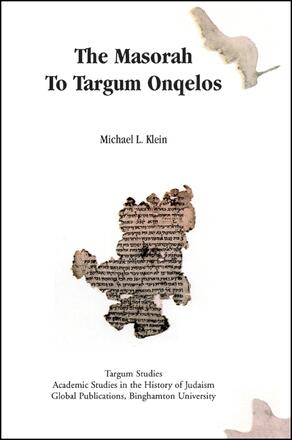
The Masorah to Targum Onqelos
A critical edition, with notes and commentary, of the ancient Aramaic translation of the Torah.
Description
The study of the Masorah to Onqelos, when undertaken in constant reference to textually reliable sources of the targum, enables one to appreciate just how scrupulous and systematic this ancient translation is. The many levels of consciousness and sensitivity to both meaning and form that are reflected in Onqelos are indeed an amazing discovery to the modern scholar, who has only in recent decades been weaned off index cards, and instead has come to rely even more heavily upon concordances and computerized databases. Here is an ancient translation that applies the principles of translational convergence and divergence, as simultaneously demanded by several concentric contexts. The meturgeman of Onqelos displays a keen ear for the most immediate and superficial context, namely, the simple sense of the original Hebrew biblical text. At the same time, his mind reverberates with centuries of traditional rabbinic interpretation, which he integrates into the seemingly innocent and literal translation. Beyond that, he does not lose sense of the living context for which he is creating his work—the congregation of simple worshippers in the Sabbath synagogue, whose religious practice and faith he instructs by conveying to them the biblical message both in their vernacular and at their assumed level of understanding. The Masorah texts make it clear that we are dealing with a conscious activity and process on the part of the earlier translator. In fact, many of the translational techniques that we have "rediscovered" in recent years were fully known and explicity expressed in these masoretic notes and lists compiled hundreds of years ago. Whereas the Masorah to the MT notes infrequent vocabulary and grammatical forms in order to prevent their disappearance at the hands of later copyists, the Masorah to the targum is mostly interested in the preservation of the translational choices made by the earlier meturgeman.